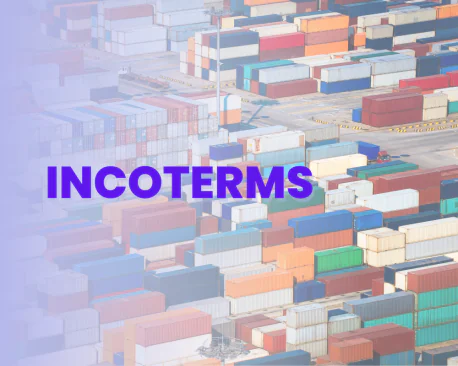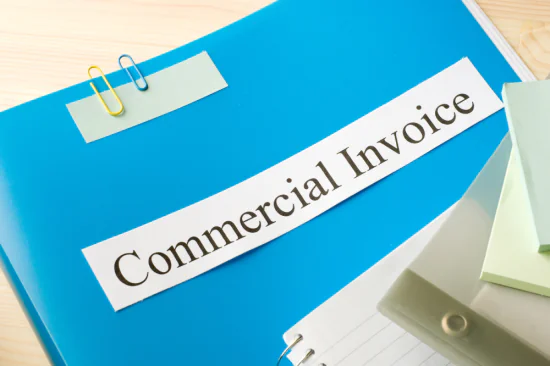|
Have you ever wondered how businesses keep track of all the costs associated with shipping their goods? The answer lies in freight accounting. Effective freight accounting is vital for optimizing costs and revenue for any organization involved in shipping logistics, consignment handling, or freight brokering. What Is Freight Accounting?Freight accounting is the process of tracking, managing, and recording all transportation-related expenses. It ensures accurate billing, cost allocation, and financial reporting for shipping activities, helping businesses control logistics costs and improve profitability. In today’s complex shipping landscape, shipping expenses can come in all shapes, sizes, and types. So, as a business owner, you need to factor in everything: from origin, destination and mode of transportation to how you charge customers for shipping and how you record your own freight costs internally. Why Is Freight Accounting Important?Freight accounting offers several advantages: Unveils Opportunities For Cost SavingsTracking your shipping expenses helps your business identify areas where you could negotiate better rates, switch to more cost-effective transportation methods, or modify your logistics operations to reduce expenses. Plus, you can spot potential issues and address them before they escalate into significant costs. Improves Freight Cost Management & VisibilityMaintaining a detailed record of all freight-related expenses, including payments for freight in/freight out and inventory management, clears up the picture of where your transportation dollars are spent. As a result, you can plan your future expenses better and see how your processes improve over time. Streamlines Tax ProceduresHaving easy access to all freight accounting expenses and transactions simplifies tax filing and helps apply the correct tax rates. Enhances Regulatory ComplianceFreight accounting also helps your company adhere to all relevant regulations within its logistics practices and financial record-keeping. Components Of Freight AccountingShipping accounting focuses on these components: Freight In Freight Out Freight On Board (FOB) Free On Board Origin Free On Board Destination Let’s dive into more details. Freight Out Vs. Freight InThese are two of the most common classifications in freight accounting and denote how shipping costs are handled in financial records. Freight InIn this shipping arrangement, the buyer is responsible for covering the shipping costs. So, if you are the buyer, shipping costs are recorded as part of your purchase and added to the cost of inventory. Later on, this entire amount affects your Cost of Goods Sold (COGS). Freight OutHere, the seller bears the shipping costs and accounts for them as a business expense (or selling expense). The cost of shipping might be factored into the overall price of the goods. However, freight in and freight out merely denote how shipping costs are handled in financial records and not who has legal ownership of goods during transit. The latter is recorded in the official shipping agreements, and it’s described by the FOB (Freight On Board) terms. What Is Freight On Board?Freight On Board is also known as FOB or Free On Board. It’s an Incoterm developed by the International Chamber of Commerce to clarify which party (buyer or seller) is responsible for the shipping costs and, most importantly, when the ownership of the goods officially transfers from the seller to the buyer. FOB is used in sales contracts and shipping agreements. It has two main types: Free On Board Origin (a.k.a. FOB Origin Or FOB Shipping Point)This means that the buyer takes on responsibility for the freight costs and risk during transit once the goods leave the seller’s shipping point. Ownership of the goods typically transfers to the buyer at this stage. This is a common arrangement when the buyer has their own shipping setup or when, for any reason, they want full control of the shipment in transit. However, sellers might still cover some initial fees, like taxes or customs, before the goods are shipped. Free On Board Destination (a.k.a. FOB Destination)Here, the seller pays for shipping costs and retains ownership and liability of the goods until they reach the destination specified by the buyer. The ownership of goods transfers to the buyer upon arrival and delivery. This shipping method is common when companies ship goods to major shipping hubs like warehouses or ports. So, How Do Freight In/Out & FOB Work Together?If you’re using FOB Origin, the buyer likely records Freight In. On the other hand, with FOB Destination, the seller likely records Freight Out. So: Scenario Legal Ownership Who Pays Accounting EntryFOB Origin Buyer owns goods in transit Buyer Buyer records Freight In FOB Destination Seller owns goods in transit Seller Seller records Freight Out Best Practices In Freight Accounting & How You Can Record Freight Costs Here are some good ways to record freight costs and streamline your freight accounting processes: System IntegrationsYour freight accounting software can potentially connect with relevant systems, such as your Transportation Management System (TMS) and Enterprise Resource Planning (ERP) system. This approach offers centralized data monitoring across all carriers and platforms, enabling better analysis and business intelligence related to freight expenses. Real-time TrackingReal-time tracking of freight expenses provides timely insights into costs. You can thus monitor factors like chargebacks as they occur, get a more accurate picture of ‘true’ payments, and enable proactive cash flow management. Utilize Machine Learning (ML)ML technologies can significantly enhance freight accounting by automatically identifying discrepancies and unusual expense patterns. This allows you to intervene on time and prevent unnecessary freight costs from accumulating. OutsourcingFor many companies, tracking and managing the complexities of freight expenses can be challenging. Partnering with a dedicated professional with all the expertise and tools at hand can help you navigate the complexities of freight accounting so that your internal finance team can concentrate on other critical areas. How To Simplify Your International ShippingShip4wd simplifies international shipping by managing your logistics from start to finish! We handle bookings, customs, pre-shipment inspections, cargo insurance, and tracking so you can focus on growth. With global reach, flexible shipping options, financing, and 24/7 support, we ensure fast, compliant, and reliable shipments. Get started with Ship4wd today! Related articles
December 15th, 2024 Commercial Invoice for International Shipping: Full Guide Read More (责任编辑:) |





